- Home
- Linda Howard
A Lady of the West
A Lady of the West Read online
LOOK FOR THESE PULSE-POUNDING
NOVELS OF ROMANTIC SUSPENSE
FROM BESTSELLING AUTHOR
LINDA HOWARD
She’s hunting for a mate—and there’s
no more playing it safe.
OPEN SEASON
Handsome, rich, sexy, deadly.…
MR. PERFECT
…and don’t miss
ALL THE QUEEN’S MEN
KILL AND TELL
NOW YOU SEE HER
SON OF THE MORNING
SHADES OF TWILIGHT
AFTER THE NIGHT
DREAM MAN
HEART OF FIRE
THE TOUCH OF FIRE
All available from Pocket Books
“A LADY OF THE WEST IS… TEXTURED WITH GRITTY REALITY, RIVETING ACTION AND SIZZLING SENSUALITY…. I COULDN’T PUT IT DOWN.”
—IRIS JOHANSEN
* * *
PRAISE FOR THE SENSATIONAL NOVELS OF NEW YORK TIMES BESTSELLING AUTHOR
LINDA HOWARD
* * *
KILL AND TELL
“Linda Howard meshes hot sex, emotional impact, and gripping tension in this perfect example of what romantic suspense ought to be.”
—Publishers Weekly (starred review)
OPEN SEASON
“A perfect mystery for a late summer weekend. It’s part romance with a dollop of suspense.” -The Globe & Mail (Toronto)
MR. PERFECT
“A frolicsome mystery… Jaine Bright lives up to her name: she’s as bright—and explosive—as a firecracker.”
—People
ALL THE QUEEN’S MEN
“A high-suspense romance…Howard’s trademark darkly sensual style and intense, layered plot will delight her fans.”
—Booklist
NOW YOU SEE HER
“Steamy romance morphs into murder mystery….”
—People
“An eerie, passionate, and thrilling tale….”
—Romantic Times
Books by Linda Howard
A Lady of the West
Angel Creek
The Touch of Fire
Heart of Fire
Dream Man
After the Night
Shadow of Twilight
Son of the Morning
Kill and Tell
Now You See Her
All the Queen‘s Men
Mr. Perfect
Open Season
Published by POCKET BOOKS
This book is a work of historical fiction. Names, characters, places and incidents relating to non-historical figures are either the product of the author’s imagination or are used fictitiously. Any resemblance of such non-historical incidents, places or figures to actual events or locales or persons, living or dead, is entirely coincidental.
An Original Publication of POCKET BOOKS
Pocket Star Book published by
POCKET BOOKS, a division of Simon & Schuster, Inc.
1230 Avenue of the Americas, New York, NY 10020
www.SimonandSchuster.com
Copyright © 1990 by Linda Howington
All rights reserved, including the right to reproduce this book or portions thereof in any form whatsoever. For information address Pocket Books, 1230 Avenue of the Americas, New York, NY 10020
ISBN: 0-671-01973-2
ISBN-13: 978-0-6710-1973-0
eISBN-13: 978-1-4516-6448-5
First Pocket Books printing September 1990
18
POCKET STAR BOOKS and colophon are registered trademarks of Simon & Schuster, Inc.
Front cover illustration by Jae Song
Manufactured in the United States of America
Dedicated to two wonderful friends,
Catherine Coulter and Iris Johansen,
for a lot of intangibles, such as support,
encouragement, laughter, and memories.
Thank God for Houston, Texas, February 1985.
A man in a passion rides a wild horse.
—Benjamin Franklin
Beware the fury of a patient man.
—-John Dryden
Contents
Prologue
Chapter One
Chapter Two
Chapter Three
Chapter Four
Chapter Five
Chapter Six
Chapter Seven
Chapter Eight
Chapter Nine
Chapter Ten
Chapter Eleven
Chapter Twelve
Chapter Thirteen
Chapter Fourteen
Chapter Fifteen
Chapter Sixteen
Chapter Seventeen
Chapter Eighteen
Chapter Nineteen
Chapter Twenty
About the Author
PROLOGUE
The land itself was extraordinarily beautiful, which was perhaps why the earliest humans to settle on the continent chose to live there. Twenty-five thousand years later, give or take a century, it would be called New Mexico, a name that failed utterly to suggest the magic of the pristine alpine forests in the north that were dotted with cold, crystal clear lakes, and graduated to rolling grasslands and solitary mountain cones. The air was so clear it soothed both the eyes and the brain, and the sunset skies were always filled with color.
The first people to live in New Mexico were what the white man would later call Indians, and they flourished for thousands of years in the beautiful land. But when the Spaniards came with their armored warriors, steel lances, and fierce horses to unearth the gold buried in the rich land, they claimed the earth itself for their faraway king. As a reward to the intrepid settlers, the Spanish kings gave them land grants, pieces of paper that declared ownership of the wild land they attempted to tame.
One of these early Spanish settlers was Francisco Peralta, a tall, quiet man with fierce green eyes. He marked out the boundaries of what he would call his, and defended it with his blood. He built an adobe house and sent to Spain for the gently born woman who had agreed to be his wife.
They had only one child, a son. But what a son he was! Juan Peralta extended the boundaries of his father’s land, he mined gold and silver, raised horses and cattle, and so became wealthy. In his turn he took a bride from Spain, a woman who fought beside him during Indian raids and who bore him three children, a son and two daughters. For his family, Juan Peralta built a new house, far grander than his father’s. His was a harmonious design with arched doorways, cool white walls, and dark earthen tile floors. Fragrant flowers bloomed in the courtyard.
Juan’s son, named Francisco after his grandfather, worked even more wealth out of the rancho. But his delicate wife died only six months after the birth of their first child, a daughter. The grieving husband never remarried and cherished his daughter, Elena, as the most precious thing in his life.
By that time, 1831, Americans were wandering all over the West, spreading out from Texas. Most of them were trappers and mountain men, some adventurers. There weren’t many at first, but more and more of them came, hard, restless men who were careless of the great beauty of the land. The Peraltas looked down on these crude Americans, and Francisco forbade Elena to speak to any of them.
But one of the Americans, Duncan Sarratt, didn’t care a snap of his fingers about Francisco’s edicts. When he saw dainty Elena Peralta, he fell in love. Worse, Elena fell in love with him, too. Francisco raged, he threatened, he tried to intimidate both his daughter and the American. But he had given Elena too many years of loving indulgence for her to take his threats seriously. She would have her American.
So she did, and they married with Francisco’s reluctant permission. Not being a stupid man, however, he quickly saw that Duncan Sarratt was, perhaps, just what Elena ha
d needed to protect her inheritance. The green-eyed American was a man who knew how to fight and how to protect his own.
Francisco didn’t live long enough to see his grandchildren born. He died the next year, 1832, and Duncan Sarratt became ruler of the Peralta lands. He grew into such an absolute ruler that he became known as “King” Sarratt. It followed, as easily as night follows day, that the high valley became known as Sarratt’s Kingdom.
The heirs to the kingdom were born: a son, Jacob, and two years later another son, Benjamin.
The boys grew up in the elegant adobe house built by their great-grandfather. They played games on the cool dark tiles, dangled by their hands from the courtyard balconies, wrestled and fought like two tiger cubs, and learned to love every inch of the kingdom that would be theirs.
But in 1845 the Americans fought a war with Mexico. It didn’t touch the Sarratts much at first, as far north as they were. But one result of the war was that Mexico ceded to the United States that great and lovely land the Americans designated as the New Mexico Territory. With a whisk of a pen, the Sarratts were living on American soil.
The United States didn’t recognize the laws and grants of the government it had replaced. The old Spanish landowners had been living on their granted land for a hundred years or more, but suddenly their homes were legally up for grabs. They could retain their land by filing on it, but most of them didn’t know that. Duncan Sarratt, living in relative isolation in his huge valley kingdom, didn’t know it. It didn’t make much difference; anyone trying to take Sarratt’s Kingdom away from him would have to fight to the death to do it.
* * *
The sound of gunfire woke the boy. He rolled from his bed and reached for his pants; the year was 1846, and at thirteen he had been doing a man’s work on the ranch for the better part of two years. Whatever the trouble was, he didn’t intend to hide from it under the bed like a kid.
He heard people running, and shouts echoed in the house as well as outside in the courtyard. He could hear his father’s voice yelling orders. The boy stamped his feet into his boots and ran out into the hallway, tucking his nightshirt into his pants as he went. He collided with his younger brother, who had just bolted from his own room. He steadied the younger boy, who asked, “What’s wrong?”
“I don’t know.” He started down the hall with his brother at his heels.
They heard an explosion of gunfire downstairs, inside the house. There was a moment’s silence, and then more shots followed, thundering, echoing through the high-ceilinged rooms. The boys automatically ducked to the side.
“Duncan!” Their mother, Elena, bolted from the bedroom she shared with their father. Raw terror was in her voice as she called out to her husband, who was downstairs. She stared at her sons, then grabbed them to her. “Stay here,” she commanded.
At thirteen the boy was already taller than his mother. “I’m going to help him,” he told her, and turned toward the stairs.
“No!” She seized his arm. “Stay here! I order you to. Take care of your brother. I’m going downstairs to your father. I’ll find out what’s going on and come back to tell you. Promise me! Promise me you’ll stay here!”
“I can take care of myself.” Her younger son thrust out his jaw. He was as fierce as his brother. She stared at him for a second, trailing her hand down his face.
“Stay here,” she whispered, and ran.
They had never disobeyed a direct order from their mother. They stood in the hallway, anxious because they didn’t know what was happening and furious because they wanted to be a part of it. The booming sound of pistol shots and the crack of rifle fire vibrated through the big house. There were shouts and curses from below, footsteps running, glass shattering.
Then a scream splintered through the noise. It rose to a shriek, then fractured into a raw, deep wail. It was their mother.
The older boy bolted for the staircase, but an abrupt sense of caution kept him from hurtling down the steps. He threw himself to the floor, and eased his head around the railing so he could see what was going on.
A man lay sprawled in the entrance foyer, only the top part of his body visible from where the boy lay. Even though half the face was gone, the boy could tell it was his father. An icy feeling of disbelief began spreading through his body. His mother had thrown herself on her husband’s body and was still wailing in that awful way. As the boy watched, a man reached down and grabbed his mother’s arm, dragging her away from the body. As he did so, the lamplight fell across his face. The boy froze. It was Frank McLain, one of his father’s men.
“Get the kids, too.” McLain’s voice was low, but the boy heard him. “Make sure they’re dead.”
Elena shrieked and threw herself at him, her nails scoring his face. McLain cursed, then drew back his fist and hit her on the side of the head, knocking her to the floor. “Get the boys,” he said again, and bent to the woman.
The boy scrambled backward and grabbed his brother. “Run!” he hissed.
The house was their home; they knew every inch of it. Knowing that their rooms would be the first places searched, they went instead to the corner back bedroom, the guest room, which had a small balcony over the inner courtyard.
“I’ll go first,” the older one whispered, and swung his legs over the side of the balcony. He gripped the black iron railing and eased down until he was hanging above the ground, then let go. It was only about a six-foot drop, one they had made many times in their rowdy games. He landed as lightly as a cat and immediately blended into the dark cover of the shrubbery that grew close against the walls. There was a quiet thump, and his brother joined him.
“What’s going on?” the younger boy whispered.
“Pa’s dead. It was McLain who did it. He’s got Mother.”
There was still sporadic gunfire, as people loyal to Duncan Sarratt and the Peralta family tried to fight. The boys crept around the wall, staying in the shadows. Their rifles were in the study, where they put them each day after carefully cleaning them. They had to get them. The inner ice was still spreading through the older boy; he kept seeing his father sprawled on the dark floor, with half of his face missing.
Their mother’s screams grated through the cold night air.
They crawled in through the kitchen door. Inside, their mother’s screams were louder, hurting their ears. She was still in the foyer, and they could hear thickly muttered curses, too.
The boy knew, and he went even colder. He was thirteen, and he knew. He rose to his feet, moving as silently as a young panther. He saw a gleam of steel on the kitchen table, and his hand automatically closed on the long-bladed kitchen knife.
The screams were only moans now, and growing weaker. When the boy walked into the foyer, he saw McLain rising to his knees between Elena’s legs, pulling out of her body. His pants were open and lowered over his buttocks, his shrinking penis glistening wetly. His pistol was still in his hand. With a faint smile, he put the barrel to the woman’s head and pulled the trigger.
An inhuman howl clogged the boy’s throat, but he was ice clear through now. He threw the knife, his aim sure, practiced through many hours of play. McLain saw only a movement in the shadows, and he dodged to one side, just enough that the blade went through his shoulder instead of his heart. He bellowed for help and struggled to his feet just as the boy’s weight hit him, knocking him back to the floor. The jarring impact made him scream in pain, and the cold floor scraped his bare ass. The boy jerked the knife free, and the bloody blade slashed downward, toward the man’s exposed privates. McLain screamed and tried to roll away. The movement of his body deflected the knife enough that it gouged a shallow slit in his upper thigh. With a feral snarl, the boy withdrew the blade and tried again, this time with a low, sideways movement of his arm. The knife gleamed both silver and scarlet, then McLain knew hot, burning, choking agony as the steel sliced into his ball sac.
He shrieked, mad with pain and fear. He rolled and tried to kick, but his legs were tangle
d in his lowered pants. He’d never known terror before, but now it congealed his blood. He couldn’t stop screaming as he tried to evade that slashing knife. In the flickering light he could catch only glimpses of the boy’s face, and it was wild.
“I’ll cut your goddamn cock off and feed it to you,” the boy whispered savagely, and McLain heard him even over the shrill hysteria of his own screams.
A shot deafened them, and the boy was slammed sideways. The knife clattered to the floor, but the boy wasn’t down. He scrambled awkwardly toward the kitchen, and the other boy, the younger one, darted forward to help him.
“Kill them!” McLain shrieked, clutching his bleeding balls with both hands. “Kill those little bastards!” He rolled on the floor, his britches still around his knees, and hatred for that Sarratt whelp swelled in his throat until he nearly choked. He whimpered, too terrified to move his hands and see what kind of damage the knife had done, but blood was dripping from between his fingers, and he realized he could bleed to death. Still whimpering, shaking, he lifted one bloody hand and moaned aloud. His penis was still there, but the left side of his sac was a mangled mess. He didn’t know if he’d lost his left testicle or not.
God damn him, the bastard had nearly castrated him! He’d wipe the face of the earth clean of Sarratts, he’d skin that boy and leave him for the buzzards. But even as he thought of all the things he wanted to do, McLain knew he’d never forget the choking terror and pain, the humiliation of rolling on the floor, his britches down, while that knife darted and slashed.
The boys lay in the small cave they’d discovered five years before, on the northern edge of Sarratt’s Kingdom. The pain rolled through the older boy, shaking him, making him grind his teeth together in an effort to stifle his moans. His brother lay still, too still, beside him. The older boy whimpered from the effort it took him to lift his arm and put his hand on his brother’s chest, to feel the rise and fall of his breathing.

 Mr. Perfect
Mr. Perfect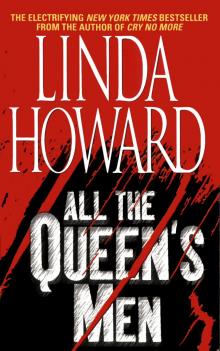 All the Queen's Men
All the Queen's Men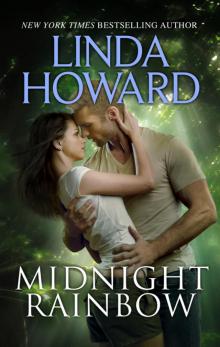 Midnight Rainbow
Midnight Rainbow Diamond Bay
Diamond Bay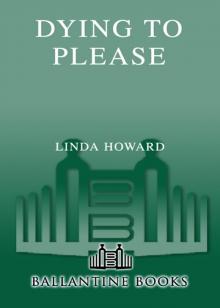 Dying to Please
Dying to Please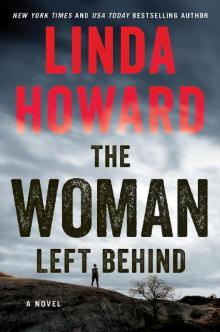 The Woman Left Behind
The Woman Left Behind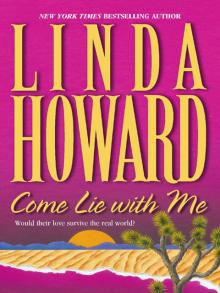 Come Lie With Me
Come Lie With Me Drop Dead Gorgeous
Drop Dead Gorgeous To Die For
To Die For Ice
Ice Overload
Overload Shadow Woman
Shadow Woman Veil of Night
Veil of Night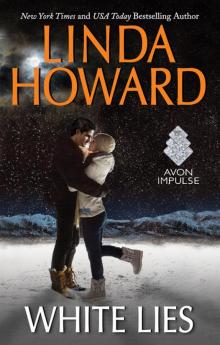 White Lies
White Lies Son of the Morning
Son of the Morning The Complete Mackenzies Collection
The Complete Mackenzies Collection Lake of Dreams
Lake of Dreams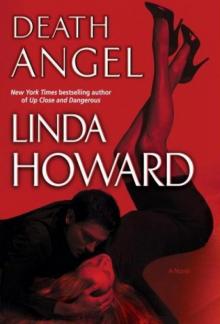 DeathAngel
DeathAngel Loving Evangeline
Loving Evangeline Burn
Burn Mackenzie's Magic
Mackenzie's Magic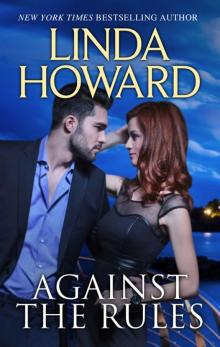 Against the Rules
Against the Rules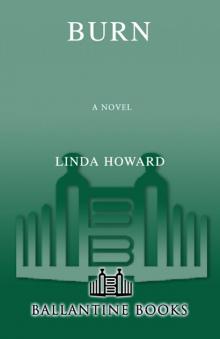 Burn: A Novel
Burn: A Novel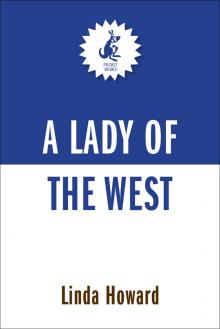 A Lady of the West
A Lady of the West Almost Forever
Almost Forever Open Season
Open Season Now You See Her
Now You See Her Prey
Prey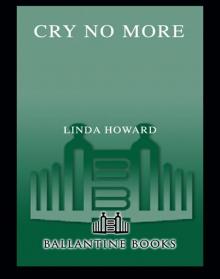 Cry No More
Cry No More Sarah's Child
Sarah's Child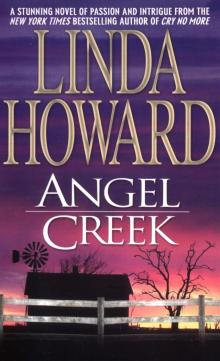 Angel Creek
Angel Creek Death Angel
Death Angel Kill and Tell
Kill and Tell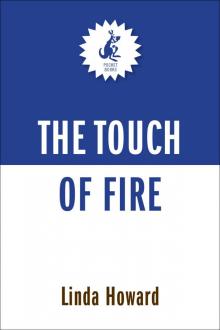 The Touch of Fire
The Touch of Fire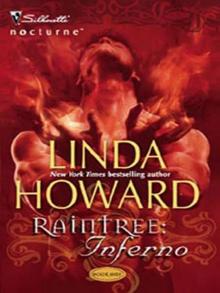 Raintree: Inferno
Raintree: Inferno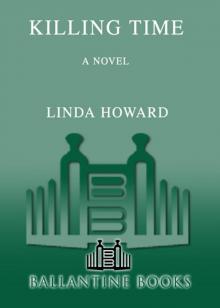 Killing Time
Killing Time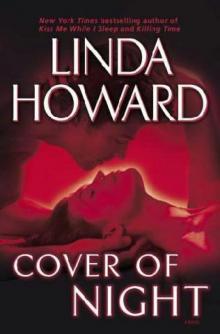 Cover of Night
Cover of Night Tears of the Renegade
Tears of the Renegade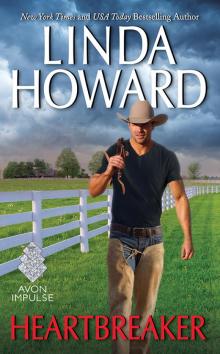 Heartbreaker
Heartbreaker The Cutting Edge
The Cutting Edge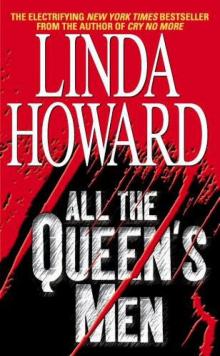 All The Queen's Men cs-2
All The Queen's Men cs-2 Veil of Night: A Novel
Veil of Night: A Novel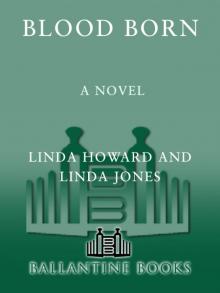 Blood Born
Blood Born The Complete Mackenzie Collection
The Complete Mackenzie Collection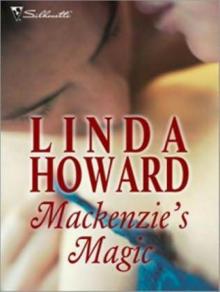 Mackenzie's Magic m-4
Mackenzie's Magic m-4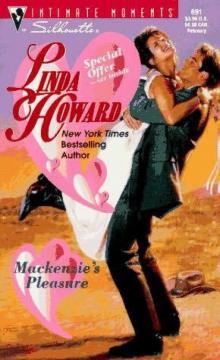 Mackenzie's Pleasure m-3
Mackenzie's Pleasure m-3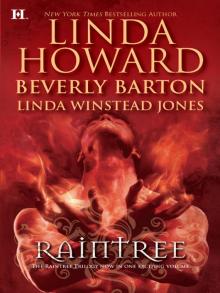 Raintree
Raintree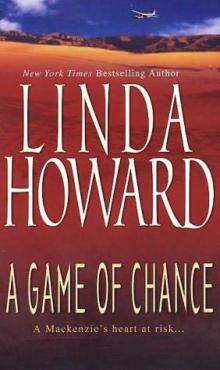 A Game Of Chance m-5
A Game Of Chance m-5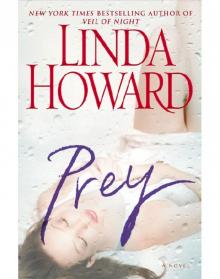 Prey: A Novel
Prey: A Novel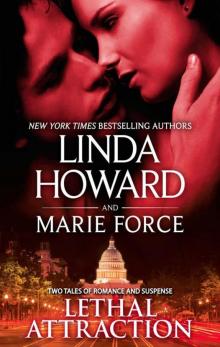 Lethal Attraction: Against the RulesFatal Affair
Lethal Attraction: Against the RulesFatal Affair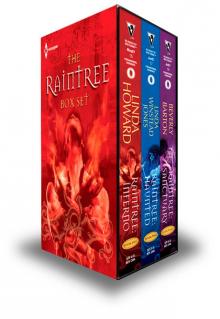 The Raintree Box Set: Raintree: InfernoRaintree: HauntedRaintree: Sanctuary
The Raintree Box Set: Raintree: InfernoRaintree: HauntedRaintree: Sanctuary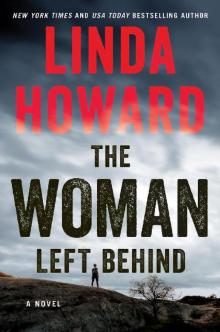 The Woman Left Behind: A Novel
The Woman Left Behind: A Novel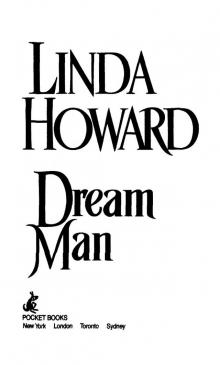 Dream Man
Dream Man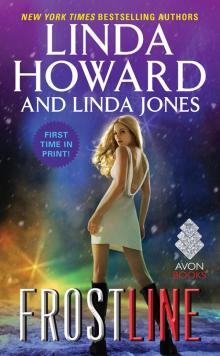 Frost Line
Frost Line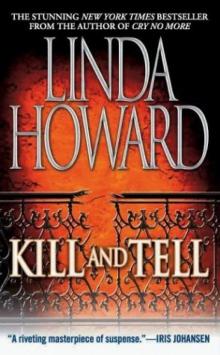 Kill and Tell cs-1
Kill and Tell cs-1 Shadow Woman: A Novel
Shadow Woman: A Novel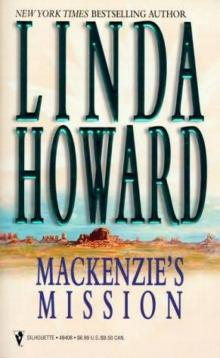 Mackenzie's Mission
Mackenzie's Mission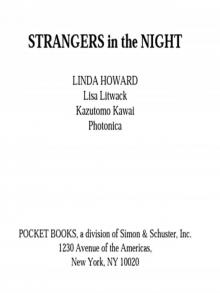 Strangers in the Night
Strangers in the Night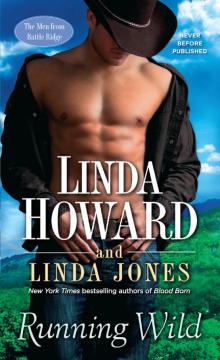 Running Blind
Running Blind